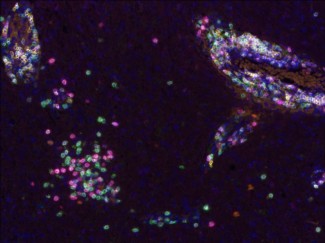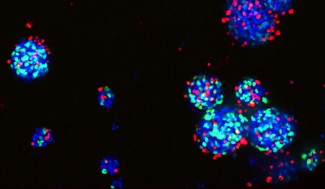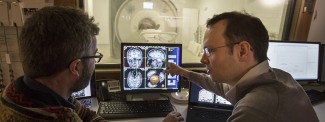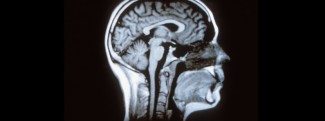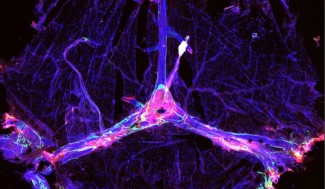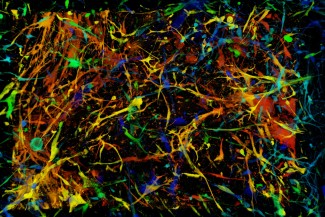Cancer tends to be linked to successive mutations in a given cell, and in specific genes responsible for the proliferation of the tumor-forming cells. These mutations are only present in the cancer cells, and not in the body as a whole. They are not, therefore, hereditary.
Biological Mechanisms of Brain Tumors
Thus, in the case of gliomas, a mutation in a gene in a particular cell, an oligodendrocyte for example, and only in that cell type and not in all cells in the body, causes it to multiply.
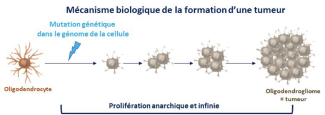
The team led by Dr Emmanuelle Huillard and Prof. Matthieu Peyre is trying to characterize the mutations in each cell type that cause brain tumors. The search for these mutations takes place in the cancer cells themselves after biopsy or surgery of the tumor.
This research involves sequencing, or reading, the entire DNA of a cell and comparing it to the DNA of a normal cell from the same individual. It is then possible to identify differences in DNA sequences that correspond to mutations that have occurred in the tumor: some of these alter the normal functioning of the cell, particularly cell proliferation.
Thanks to Paris Brain Institute’s genotyping/sequencing platform, it is now possible to read the entire DNA of a very small number of cells very reliably and in just a few hours, compared to the several weeks required previously.
In addition, faster molecular diagnostic technology has been developed at Paris Brain Institute: nanopore sequencing. This technique enables a number of processes, including the study of structural variants, single mutations, and methylation profiles, an epigenetic characteristic, over the course of a single day using a single tool and at a lower cost.
Identifying the mutations that cause brain tumors enables the following:
- Accurate diagnosis of the tumor
- Understanding of the mechanisms that cause tumors
- Identification of new therapeutic approaches.
At Paris Brain Institute
Researchers from Dr Emmanuelle Huillard and Prof. Matthieu Peyre’s team are focused on specific subtypes of gliomas: gliomas of the midline of the brain and spinal cord in adults. They have identified a mutation present in 20% of cases in the FGFR1 gene. There are now specific treatments that target this gene, choroid plexus gliomas characterized by a very specific mutation (Rosenberg), gliomas with genetic instability that makes them vulnerable to specific treatments including immunotherapy (Touat, nature), and gliomas characterized by a significant inflammatory response.
Researchers from the team of Dr. Mehdi Touat and Prof. Franck Bielle "Genetics and Development of Cerebral Tumors" have found genetic changes in some recurrent gliomas that lead to the development of resistance to chemotherapy. The study, beyond its very comprehensive approach to various aspects of molecular and mechanistic analysis, deals with the largest sample ever explored for brain tumours.

